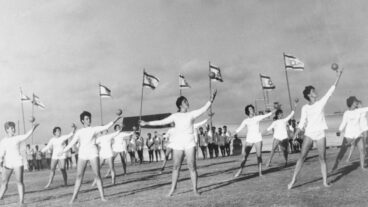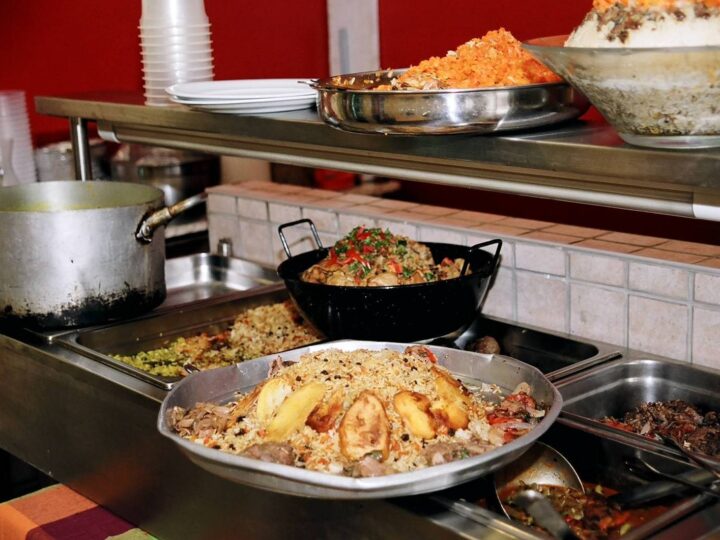Golan Heights Winery is the first Israeli producer to capture a Gran Vinitaly Special Award as ‘world’s best wine producer.’
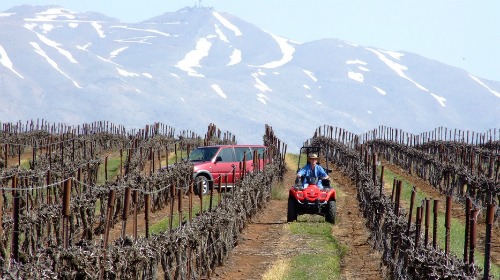
If only Victor Schoenfeld could have learned the secrets of his ancient forebears’ winemaking enterprise in what is now the Golan Heights.
But the Roman conquest put an end to winemaking here back in the eighth century, and grapes were only reintroduced to the rich soil of the Golan Heights in 1976. So Schoenfeld, who learned his trade at the University of California-Davis, has spent 20 years building up the old-new business from scratch as head winemaker for Golan Heights Winery.
At this winery, which claims much of the credit for igniting the Israeli wine revolution of the past decade or two, Schoenfeld oversees an expensive and sophisticated operation. Soil mapping, weather stations, precise irrigation systems and other innovative methods are employed to get what he calls the “maximum personality” from the grapes into internationally praised wines.
These efforts have paid off handsomely. In the latest of a string of accolades, Golan Heights received the Gran Vinitaly Special Award as the best wine producer out of 1,000 competitors from 30 countries at the 19th International Vinitaly 2011 Wine Competition earlier this spring in Verona, Italy.
The award is given to the wine producer achieving the best overall results. Golan earned two of Vinitaly’s 16 coveted Grand Gold Medals, for its 2009 Yarden Chardonnay Odem Organic Vineyard and its 2008 Yarden Heights Wine. A panel of 105 leading winemakers and wine journalists selected the winners in blind tastings.
“We are extremely proud of being the first Israeli winery to be named the best wine producer at Vinitaly – the top award at one of the world’s most prominent wine competitions,” said Anat Levi, CEO of Golan Heights Winery.
Levi singled out Schoenfeld for “implementing our vision of quality and excellence for two decades.”
An important accomplishment for Israel
“Israel has been getting more and more recognition internationally as a quality wine producer,” Schoenfeld tells ISRAEL21c. “This award is another stage is this development. I think it is an important accomplishment for Israel.”
The Zichron Yaacov-based Carmel Winery won a 2010 Decanter World Wine Awards trophy and the Psagot Winery took gold and silver medals home from the March 2011 Vinalies competition in Paris. British wine critic Oz Clarke’s significant Pocket Wine Book 2010 includes two Israeli wineries, Domaine du Castel and Yatir.
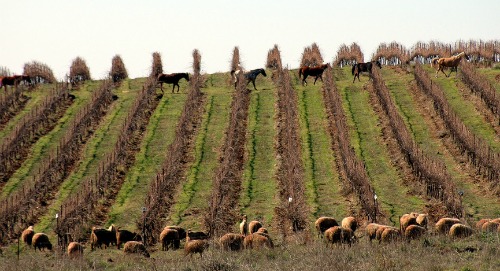
Golan Heights Winery was founded in 1983 by eight collective farms, and markets its Yarden, Gamla and Golan brands to Japan, Hong Kong, China, Scandinavia, Germany, Poland, France, Italy, the US, Brazil and Costa Rica. It also owns the Galil Mountain Winery. Managing a staff of about 20 winegrowers and winemakers, Schoenfeld celebrated 20 years on the job in April.
“Over that time, the winery has gotten roughly three times larger … and we are a higher quality wine producer than we were 20 years ago,” he says. “We invest hundreds of thousands of dollars each year in development projects, in order to improve grape and wine quality.”
Under Schoenfeld’s guidance, the winery has introduced new varieties. About a third of the six million bottles produced by the three labels each year are exported. Overall, Israel’s hundreds of wineries export about $18 million worth of products annually.
“We don’t make each wine every year, on principle,” Schoenfeld explains. “It depends on the character of the harvest. But we generally make 30-plus different wines each year, and we have come to learn where the different varieties thrive. Over the last decade, we have started to make more and more single vineyard wines, wines that reflect a very specific geographical spot. Wine lovers have found these to be very interesting and gratifying.”
Within the prime Mediterranean winegrowing region, Israel is blessed with a unique combination of latitude, elevation and volcanic soil – all key factors in winemaking.
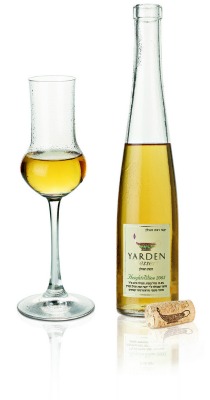
Latitude and elevation affect temperatures, and differences of just a few degrees among its vineyards account for the ability to make a range of wine styles. Golan Heights Winery has won past Vinitaly Grand Gold Medals for its Cabernet Sauvignon, sparkling wine, Chardonnay and dessert styles, and was named best foreign winery at the Prague Trophy 2008 international wine competition.
The head winemaker says he is “confident that our wines will be even better in five years than now, and the wines will be better in 10 years than in five years from now. We have a winegrowing region that is exceptional and we are still working to exploit the potential of the Golan Heights.”





